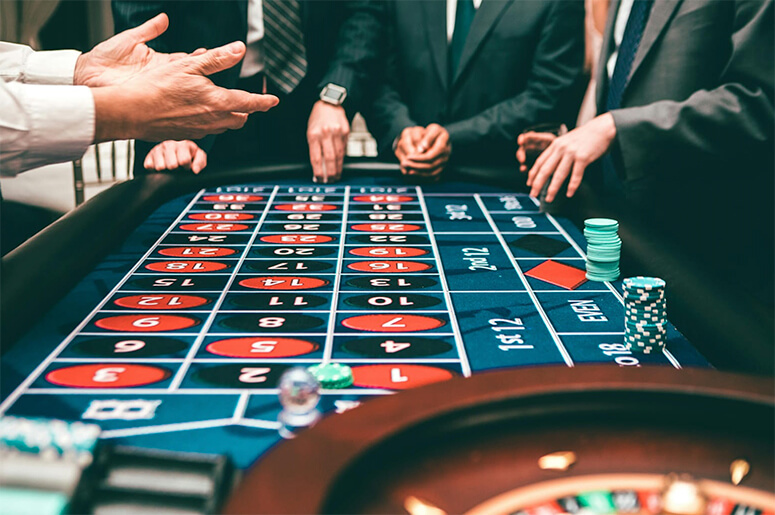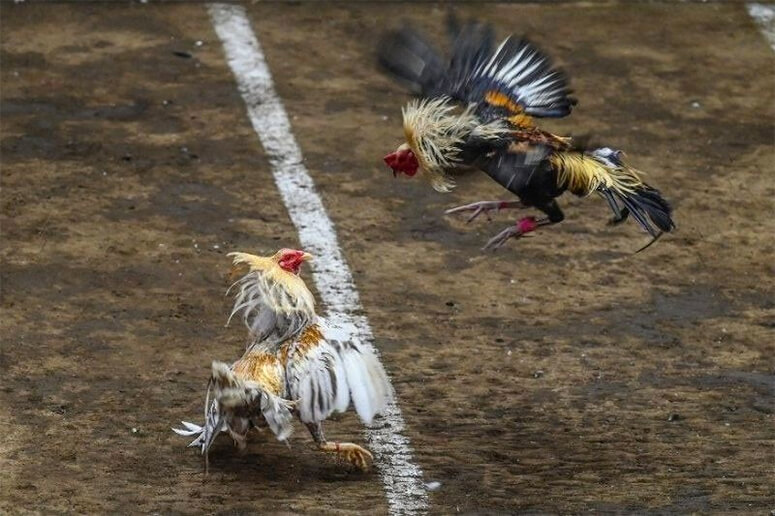To bet or not to bet
By all accounts, I should have become a professional gambler, or at least a well-dressed hustler with a permanent seat at the poker or mahjong table and high-roller privileges at the newest casino.
While many kids my age were playing with toys or getting dirty on the streets, I grew up enjoying a good book or watching sci-fi TV shows; listening to legends like Led Zep, the Stones and the Beatles, Aerosmith, Steely Dan, Lynyrd Skynyrd, Traffic, The Who, Fleetwood Mac, Janis Joplin, Jeff Beck, John Mayall, and Yes; all while augmenting my measly allowance through… gambling.

My childhood, you see, was not just about school, library, cinemas, and TV (in other words, a self-confessed geek and nerd). I dabbled in street games, that’s true, but most of my free time was devoted to side hustles. And my most lucrative raket was gambling.
I had lucky coins for cara y cruz, dominoes with faded pips, and unmarked “Bicycle” playing cards. It’s important to stress that I used only my own unmarked decks because I almost always played the dealer or banker in popular games like Black Jack and Lucky Nine (a.k.a. Baccarat) —I was advised early enough that the player/bettor is always at a disadvantage.
But I was also open to Monte, that glorified shell game for people with poor impulse control, and I knew Stud Poker and Panguingue before I even learned fractions. Though I played Bridge like it was a contact sport, I can’t recall ever not knowing what pares-pares meant (hellooo ... it literally means pair-pair), or how to suspiciously eye someone on a roll in pekwa.

As I got older, I picked up the local favorites: pusoy, pusoy dos, tong-its. Of course, my gambling journey would be incomplete without my casino forays. In the few times I visited the casino, Black Jack was still my game, only because I could count cards. I quit when the pit boss started hovering a little too long.
The real thrill, I suppose, came from the risk in betting. With the exception of mahjong, which I learned before my sixth birthday and enjoy to this day, I could never play any of these games without money at stake. There’s just something about outplaying unwitting opponents whom I could read as easily as I could read a lying witness on the stand.
These days, I still flirt with fate, buying lotto tickets when the jackpot hits nine digits ‘coz I’m greedy that way. I hardly bet on sports and races (even if I ventured into street racing back in college) and I’ve never tried online gambling. I’m leery of anything AI so I draw the line on State Lottery.

Can I say I’m a gambler? Maybe. But age has made me more cautious, and my idea of a risky bet is visiting a restaurant that doesn’t take reservations or eating street food, well, on actual streets.
A nation of gamblers? Or naïvely devout people?
The Philippines has always had a complicated relationship with gambling. On one hand, we have Pagcor, created in 1977 by Marcos 1.0, to regulate and promote gaming “for nation-building.” On the other hand, we’ve had debates since the 1990s about lotto booths and OTB stations being too close to schools and churches, like they were spiritual bait for desperate souls.
In recent years, gambling controversies have moved from cockpits to congressional halls. The POGO industry took off under the previous administration, targeting Chinese gamblers and bringing in billions in revenues. However, it came at a cost via kidnappings, prostitution, money laundering, government corruption, and diplomatic complaints from Beijing. “Offshore,” it turned out, was just another way of saying “out of sight, out of regulation.”

Then there was e-sabong, legalized in the middle of the pandemic to keep money flowing while everyone else was indoors and moral compasses were optional. The government had a cash cow, until over 30 sabungeros mysteriously disappeared, allegedly into the equally mysterious depths of Taal Lake.
So why do people gamble in the first place? I’ve given my answer: for the money and for the thrill of winning.
It’s not just a Filipino thing. The dream of overnight riches is universal, even in developed nations, because gambling offers not only financial liberation but also hope for a much better future. And hope, like any addictive substance, is hard to give up. Filipinos, in particular, harbor a formidable amount of optimism riding on the coattails of Catholic teachings and the power of divine providence.
What can we do?
To their credit, lawmakers and government agencies are trying to rein in the chaos: multiple inquiries into POGOs and e-sabong have been initiated—of course, in aid of legislation; some LGUs have kicked POGOs out of their jurisdictions; calls have been made to ban advertisements, especially those endorsed by celebrities and influencers; and there’s a move to “heavily” regulate online gambling.
Those junkets from countries with strict anti-gambling laws should no longer be tolerated for the simple reason that they enable the operators of casinos without contributing anything positive to Philippine society.
Most importantly, unless poverty, hopelessness, and the very human craving for magic are addressed, the gambling epidemic will not disappear or even subside. In a country where minimum wage barely keeps up with daily fare, gambling becomes less a vice and more a coping mechanism, a panacea for paucity. When choices are limited, the idea of a windfall, even despite terrible odds, sounds better than the certainty of another long day in a dead-end job.
The Church could focus on human productivity (not reproduction) instead of merely condemning the sinning gambler. Therapy might help, especially in extreme cases where, in order to sustain the addiction, a gambler resorts to crime, domestic violence, and even organ sale.
Remember that rule I learned as a young hustler? The house always wins. It’s a reality every prospective gambler ought to know.


